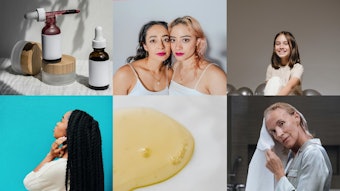The next training course, "Safety Assessment of Cosmetics in the European Union (EU)," will be held at the Vrije Universiteit Brussel in Brussels, Belgium, April 2-7, 2006. The course will cover such topics as:
• What are the current challenges in safety assessment of cosmetics in the EU?
• Which role does risk perception play in our society and how does it affect the cosmetic industry?
• What are "validated" and "valid" alternative methods? What is their actual use and how to perform these tests?
• Is human testing an alternative to animal testing?
• Which role does systemic toxicity testing play in the safety assessment of cosmetics?
• How to make a technical dossier for a finished cosmetic product according to the 6th and 7th Amendment?
• How to make a technical dossier for a cosmetic ingredient to be taken up in one of the positive lists (Annexes) of the EU Cosmetic Legislation?
• Can the process of risk assessment be improved by new methodologies?
Safety is a key issue in the regulation of cosmetics in the EU. It was firstly dealt with in Council Directive 93/35/EEC amending for the sixth time Directive 76/768/EEC. The new provisions of Article 7a §5b(4) introduced the obligation to keep available for every cosmetic product marketed in the EU a technical dossier containing a safety evaluation of the finished product. §5c(2) states that the safety evaluation must be performed by a qualified professional, holding a diploma in the field of pharmacy, toxicology, medicine, dermatology, food chemistry, chemistry or a similar discipline after a minimum education period of three years. Several reasons, however, exist that urge potential safety assessors of cosmetics to follow additional specific academic training in safety evaluation of cosmetics.
Reasons include the unadapted traditional lesson packets of the diplomas mentioned in the EU legislation, the existence in some Member States of additional legal training requirements for a safety assessor, the Seventh Amendment, characterized by moving from in vivo to in vitro testing in safety assessment of cosmetic ingredients and their finished products, the special needs for small and medium sized enterprises (SMEs), the growing awareness of the consumer, and the changing task of raw material suppliers for cosmetics. This course therefore offers an intensive training programme, designed for safety assessors of cosmetics in the EU.
It is also open to raw material suppliers, responsible persons of SMEs and contract laboratories, inspectors and legislators. The course is realized in close collaboration with the cosmetic industry and teaching is carried out at a high standard academic level. Particular emphasis is given to key issues in safety evaluation of cosmetics including the application of alternative 3R-methods and the interpretation of the results, how and when animal testing can be done and remains a necessity, what are the toxicological requirements by the Commission for cosmetic ingredients testing.
Practical courses, in which the realization of a technical dossier for a finished cosmetic product is central, are included. The possibility will be given to all participants to pass a written exam at the end of the last day of the course. A second date will be fixed in agreement with the participants. For more information, visit: http://safetycourse.vub.ac.be.










